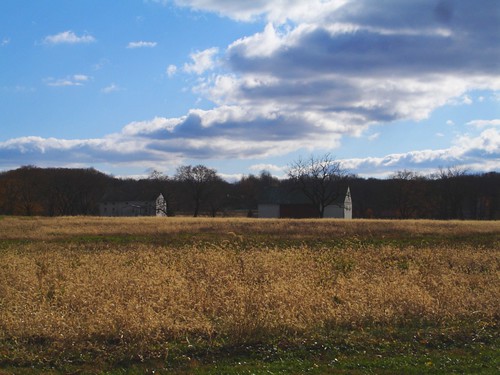I have yet to be satisfied with a film treatment of Roman Britain (*cough* The Last Legion *cough*), and I have the feeling The Eagle might annoy me much like 2004's ridiculous King Arthur.
"But you haven't seen it yet."
No. I haven't. And yet I'm already annoyed. Why?
Well, The Eagle, much like the forgettable film Centurion, is about the legendary Ninth Legion, which supposedly disappeared during a disastrous run-in with the local Britons up north of Hadrian's Wall around the year 120. Of course, whether this actually happened--not so much a local uprising, which is pretty much par-for-the-course, but the disappearance of the legion--is a matter of debate.Still, it's not the historical ambiguity that bothers me.
It has 2nd century Picts speaking Scottish Gaelic.
Let me say that again.
It has 2nd century Picts speaking Scottish Gaelic.
There is so much wrong with this.
According to the London Times
Macdonald has a fairly free rein in recreating his ancient tribe; but he is determined to be as authentic as possible, with the tribesmen in the movie all speaking Gaelic. In order to achieve a little contemporary symbolism, the Romans will be played by American actors.
[snip]
They were a more indigenous folk than the Celts, who were from further south,” he argues. “They were probably small and dark, like the Inouit [sic], living off seals and dressed in sealskins. We are going to create a culture about which no one knows much, but which we will make as convincing as possible. We are basing it on clues gained from places like Skara Brae and the Tomb of the Eagles in Orkney, so that we will have them worshipping pagan symbols, like the seal and the eagle.
OK. Where to begin. First, if you want to be authentic, then you wouldn't have Picts living in the second century speaking Gaelic, which wasn't spoken by any sizable portion of people living in Britain at that time. For one thing, "Gaelic"--in this case, the Scottish dialect of Goidelic--didn't exist; there were dialects of Old Irish, mostly spoken in Ireland (I don't think there were any Irish settlements in Britain at the time, but I could be wrong). Having Picts speak Scottish Gaelic is like having King Alfred the Great speaking Elizabethan English and declaring it authentic.
Secondly, the Picts, insofar as they spoke a Celtic language, were Celts. "Celtic" isn't a race, it's a group of related languages/cultural output. That Pictish was probably a strand of Celtic--specifically P-Celtic, and thus distantly related to Gaulish and ultimatley Welsh--is largely accepted by academics, though there are always some who disagree; Wikipedia has a pretty decent introduction to the disagreements, and where the current thinking stands.Even as early as the 1500s, scholars saw the similarities between Gaulish and Pictish (yeah, I was surprised too by the early date; George Buchanan figured this out a full hundred years before Edward Lhuyd pioneered the use of "Celtic" to describe the related languages of Welsh, Cornish, Irish, Manx, etc.).
I'm not sure how Macdonald can say "They were Celts, expect that they weren't; they spoke Gaelic, except they didn't; this is authentic, even though we don't know anything about the Picts, except that we do, since they were short and not Celtic" and not expect my head to explode.
I get that the Picts helped form the Scottish nation; but they weren't Scotti, the name of the people who conquered them; they probably adopted Gaelic as it became advantagous to speak the langauge of the political elite, but that was centuries after the events of the movie. The best evidence we have tells us that they were related to the other Britons just south of them, who went on to become the Welsh, Cumbrian, and Cornish peoples. If he wanted to be "authentic", he could have had them speak Welsh, which is closer to what we know of Pictish than Scottish Gaelic is.
Moreover, the non-Scottish history of Northern Britain is often glossed over in popular culture, which is very frustrating. (To see Y Gododdin called "The Oldest Scottish Poem" is completely anachronistic. Sorry, Kenneth H Jackson, but come on!)
I hope the music for the movie is by these guys:
Because their knowledge of Druids is as well informed as The Eagle's knowledge of the Picts.



